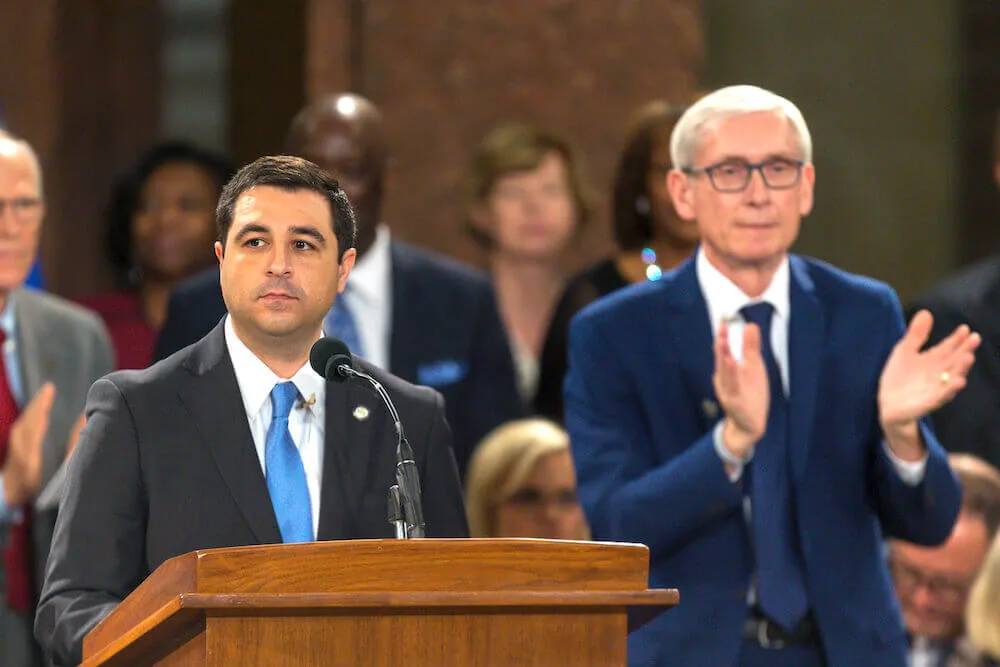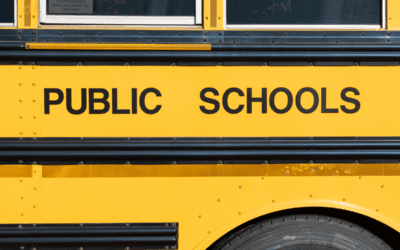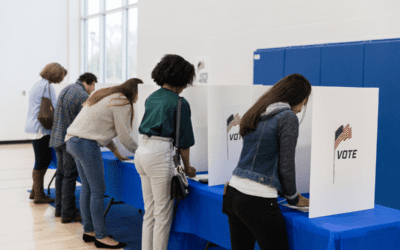
Wisconsin Attorney General Josh Kaul and Wisconsin Gov. Tony Evers (AP Photo/Andy Manis)
A state Supreme Court now controlled by progressives could end the Legislature’s ability to bottle up a wide range of actions most governors are able to take.
Gov. Tony Evers and state Attorney General Josh Kaul filed a lawsuit on Tuesday against Republican leadership in the Wisconsin Legislature over a process the governor says gives lawmakers unconstitutional powers to block the actions in a separate branch of government.
Evers and Kaul are suing over multiple episodes that illustrate how laws—already passed by the Legislature and signed by the governor—cannot take effect because a handful of those same lawmakers are able to hold up the rules that implement those new laws. The most visible example is an approved pay raise for tens of thousands of University of Wisconsin System employees that is being blocked because Republican leaders don’t like how some of the UW funds are spent.
“Republican legislators are unconstitutionally obstructing basic functions of government,” Evers said in a statement announcing the lawsuit. “Actions that have not only aimed to prevent state government from efficiently and effectively serving the people of our state but are now actively harming tens of thousands of Wisconsinites every day across our state.”
Because many laws are written in generalities, the actual process of putting the law to work is done through a rule-making process that involves departments of the executive branch and a group of legislators in what are known as rules committees—such as the Joint Committee for the Review of Administrative Rules or the Joint Committee on Employment Relations. For many years these committees worked cooperatively to streamline the implementation of a law. However, since the election of Evers, a Democrat who unseated Republican Scott Walker, those committees have frequently “objected” to a rule sought by Evers’ departments—effectively freezing a law from actually taking effect.
Evers’ actions in his first term were often set back not only by the Legislature but by a state Supreme Court controlled by conservative justices. That changed this year when the election of Justice Janet Protasiewicz gave liberals control of the court for the first time in 15 years and gave Evers a reason to try to restore balance in the rulemaking process that allows laws to do what was intended.
In the case of UW System employees, the new state budget—approved by the Republican-controlled Legislature and signed by Evers—includes pay raises for all state employees. Normally, the Joint Committee on Employment Relations would quickly approve the rules for issuing the pay raises. But at its meeting on October 17, Republicans withheld the pay raise for 43,000 UW employees—holding it “hostage,” as Evers puts it, until a GOP demand is met that the UW cut all positions associated with racial diversity, equity, and inclusion (DEI).
There is nothing about DEI positions mentioned in the state budget bill approving the raises.
“To protect our liberty, the Wisconsin Constitution, like the US Constitution, provides for the separation of powers,” said Kaul in the lawsuit announcement. “Despite the importance of this constitutional safeguard, however, the state Legislature has given legislative committees a veto over a wide range of executive branch activity, concentrating executive power in small subsets of the Legislature. In the case filed today, we argue that, as courts in other jurisdictions have, the Wisconsin Supreme Court should hold that legislative vetoes of executive branch acts are unconstitutional.”
Kaul and Evers say similar efforts made by legislatures in Alaska, Kentucky, Michigan, Missouri, New Jersey, and West Virginia have been struck down by appellate courts.
The governor and attorney general also cited Republican blocks on 27 different conservation projects under the Knowles-Nelson Stewardship Program—one-third of all proposed projects since Evers took office in 2019—for an average of 291 days each, before the projects were approved, denied, modified, or withdrawn. Under the program, the Department of Natural Resources (DNR) is working with a funding total already approved by the full Legislature as it reviews applications and awards specific grants. But the Legislature’s Joint Finance Committee requires the DNR to then get its approval for each individual project.
In another example, the Joint Committee for the Review of Administrative Rules has had a block in place for three years on a rule that would prohibit so-called “conversion therapy.” The rule from the Marriage and Family Therapy, Professional Counseling, and Social Work Examining Board would define actions taken in an attempt to change a person’s sexual orientation or gender identity as unprofessional conduct. Republicans on the committee have prevented the rule from taking place even though state law is clear that it’s the board—not the Legislature—that is responsible for writing administrative rules that establish ethics standards for social workers, marriage and family therapists, and professional counselors.
Support Our Cause
Thank you for taking the time to read our work. Before you go, we hope you'll consider supporting our values-driven journalism, which has always strived to make clear what's really at stake for Wisconsinites and our future.
Since day one, our goal here at UpNorthNews has always been to empower people across the state with fact-based news and information. We believe that when people are armed with knowledge about what's happening in their local, state, and federal governments—including who is working on their behalf and who is actively trying to block efforts aimed at improving the daily lives of Wisconsin families—they will be inspired to become civically engaged.


Opinion: Many to thank in fair maps victory for Wisconsinites
On February 19, 2024, Governor Tony Evers signed into law new and fair state legislative maps, bringing hope for an end to over a decade of...

Opinion: Empowering educators: A call for negotiation rights in Wisconsin
This week marks “Public Schools Week,” highlighting the dedication of teachers, paras, custodians, secretaries and others who collaborate with...

Op-ed: Trump’s journey from hosting The Apprentice to being the biggest loser
Leading up to the 2016 election, Donald Trump crafted an image of himself as a successful businessman and a winner. But in reality, Trump has a long...

Not just abortion: IVF ruling next phase in the right’s war on reproductive freedom
Nearly two years after the US Supreme Court overturned Roe v. Wade, another court is using that ruling to go after one of the anti-abortion right’s...





